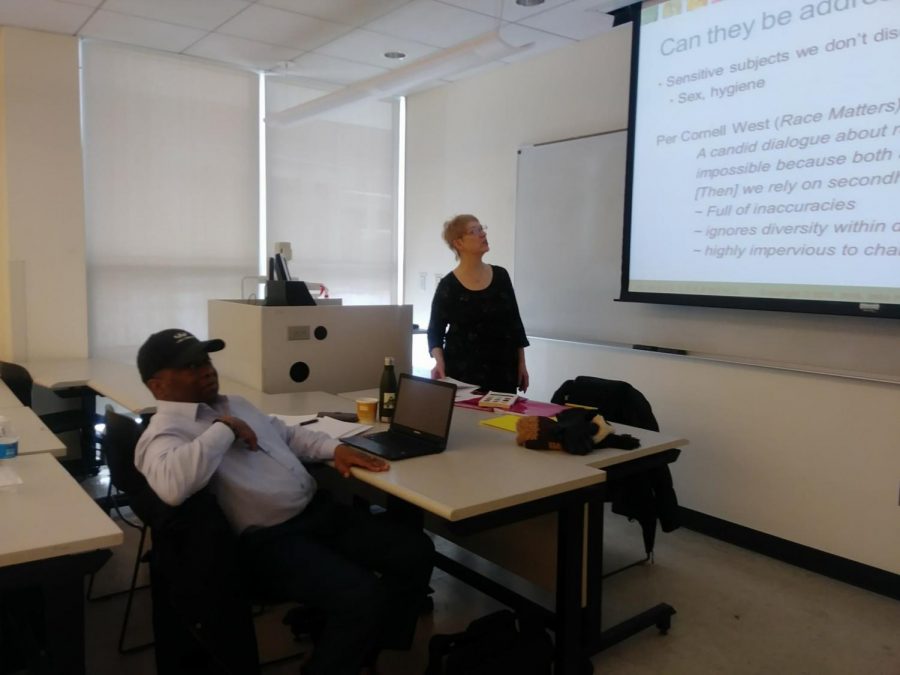What is Academic Writing Anyway?
February 13, 2018
Every year an estimated 2,000 NEIU students enroll in one of the university’s writing intensive courses (WIP) to meet their academic writing requirement. Dr. Kate Hahn, Director of the CAW, says that 1000 students per semester take a WIP course.
Academic writing pertains to the language, style and format of writing that is used by scholars, faculty, and researchers. It aims to give information about a particular subject and to argue a position on an idea. It distinguishes academic prose from other written works.
An instructor of the English language program Susan Berkman teaches the WIP course for the university’s non-traditional degree program. She describes an important characteristic of academic writing as, “the one thing that I would stress is clarity. Academic writing requires critical thinking, which is expressed through clear writing. Clear writing consists of rhetoric that is specific and that has a logical flow or structure. You want your reader to easily perceive your points and follow along without confusion.”
It is very helpful to learn and develop this style of writing, especially if graduate school is a future goal, according to Berkman. A written piece assigned by high school teacher may not require a specific margin, font size or format. However, an academic assignment at a university level normally requires the writer to use a certain style of the American Psychology Association or the Modern Language Association. Every discipline offered at the university has a WIP course requirement. NEIU’s Center for Academic Writing is the university’s support center for students seeking to develop their academic writing skills.
WIP courses became requirements for NEIU students in the fall of 2008. The center opened in 2009 when a faculty task force came together in an effort to develop the academic writing skills of students. This task force defined the guidelines for a WIP course. The center employs 30 student tutors to ensure that students can receive the support they need.
Dr. Hahn says that one-way students can see the relevance of academic writing is to understand that writing is always in context. For example, the written language used to send a text to your children would be different from the language used in an email to your boss.
Here are some things that students should know about academic writing:
- Different disciplines have different formats for writing
- Citations and references are always used. There are different ways of citing information
- Academic writing is not about using big words or trying to sound smart.
- The tone of academic writing is impersonal and dispassionate.
- Good academic writing aims at a specific audience.
- It always refers to previous research done in the area of discourse.
Peer tutors and writing fellows are available during their peer tutor hours, approximately five hours a week in CAW.
Please make an appointment with a peer tutor, call CAW at (773) 442-4492. Workshops are typically around 50 minutes long and tutors ask students to bring two copies of any written work, class notes, a syllabus of the course, textbooks and an assignment description.









